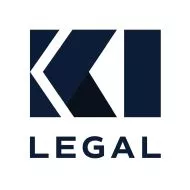For many businesses, the protection of trade secrets and confidential information is the key to continued success. Perhaps the most famous example of a trade secret is the Coca-Cola recipe—it is so valuable that the company keeps it locked in a gigantic metal vault! Trade secrets and confidential information can be essential to a company's capacity to develop products, provide services, and gain an economic advantage. The wrongful use or disclosure of a trade secret can easily destroy its value and cause significant harm to a company. In other words, the high value of some information is completely dependent on that information's secrecy. One can only imagine the damage that would result to Coca-Cola if its "secret formula" was leaked to the public...
So, what is a trade secret? Under New York law, a trade secret is "any formula, pattern, device, or compilation of information which is used in one's business, and which gives [the business owner] an opportunity to obtain an advantage over competitors who do not know or use it."1 There are certain factors that courts will consider in determining whether certain information is a trade secret. One factor is the extent to which the information is known outside of one's business. Another is the extent of measures taken by the business to protect the secrecy of the information.2 In short, to be a trade secret, there must be ongoing effort to keep the information secret. Some common examples of trade secrets include:
- Marketing plans,
- Commercial drawings,
- Food recipes,
- Sales data, and
- Detailed information about a business's customers.
It is important to note, however, that not all confidential information is a trade secret.
In New York, employees have a common law duty to protect their employer's confidential information and trade secrets. During the term of employment, employees generally may not disclose such information to parties outside of the company, especially if they are competing businesses - even without an employment contract. Moreover, while the duty to protect an employer's trade secrets automatically continues after employment, it is not uncommon for employees to sign nondisclosure agreements. These agreements prevent employees' use or disclosure of confidential information for a certain time period after the employment relationship ends.
On the other hand, after the employment relationship ends, employees are free to use the knowledge and skills that they acquired in the course of their employment. The issue, however, is that in many instances, the line between (a) using accumulated knowledge or experience and (b) divulging a legally protected trade secret is not clear.
Disclosure of trade secrets and confidential information can have massive consequences for both the employer and the employee. For some businesses, trade secrets can be immensely valuable assets. Their disclosure can, for example, destroy the competitive advantage they once created. If an employee discloses a company's trade secret, they may be sued. The consequences of such a lawsuit can involve the employee having to return any compensation they received for their use of the trade secret and pay compensatory damages to their old employer.
Footnotes
1. Addison Hosp. Grp. LLC v. Kaciupski, 2018 WL 2766891, at *5 (Sup. Ct., N.Y. Cty. June 6, 2018).
2. Restatement of Torts Sec. 757(b).
The content of this article is intended to provide a general guide to the subject matter. Specialist advice should be sought about your specific circumstances.


